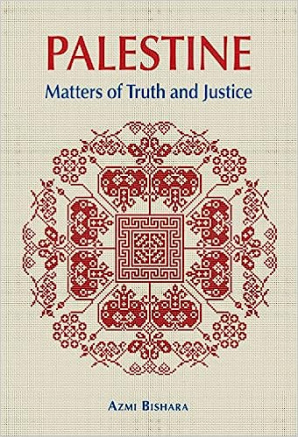Palestine: matters of truth and justice By Azmi Bishara

Professor Azmi Bishara writing here on the subject of Palestine comes not just as an academic, theoretician and leading intellectual, but also as a practitioner who has delved into the core of politics for decades in Palestine and Israel.
This scholar who lived the conflict and interacted with it almost his entire life, strikes a remarkable distinction between objectivity and neutrality. He explains how he firmly grounds his work in objectivity as a scholar, primarily using a scientific method, available facts, and reasoning. Neutrality for Bishara, on the other hand, is an attitude and a belief, not a research method, and, when it comes to an issue of oppression, neutrality can become an immoral stance. On that point, he makes it clear that he is not neutral on anything to do with the question of Palestine.
Bishara also refuses the 'bargaining' of so many political formulas to settle the conflict, committing instead to the principle of justice as the basis for addressing the Palestine question. Notably, this question is simply 'not a dilemma awaiting creative policy solutions, but rather a question of injustice that can only be resolved through the application of justice' (p. 2).
In fact, justice has been ignored from the very beginning of international efforts to resolve this conflict.1 This has been true since the peace conference that took place in Lausanne in 1949 that, as Ilan Pappé argues, harmed the Palestinians in a similar way to the November 1947 partition plan. He argues that, in addition to ignoring the fact that Zionism is a settler colonialist movement.
As Cecilia Albin shows, there is no peace without justice.3 Therefore, Bishara opens the discussion in his book with al-Nakba in 1948, as it is important to note that Palestinians have yet to receive justice for what happened decades ago before any form of reconciliation takes place.
References
1. Noam Chomsky, Middle East Illusions: including peace in the Middle East?: reflections on justice and nationhood (Washington, DC: Rowman & Littlefield, 2003).
2. Ilan Pappé, ‘Historiophobia or the Enslavement of History: the role of the 1948 ethnic cleansing in the contemporary Peace Process’, Arab Studies Quarterly 38, no. 1 (2016), p. 402, https://doi.org/10.13169/arabstudquar.38.1.0402.
3. Cecilia Albin, The SAGE Handbook of Conflict Resolution (London: SAGE, 2009), https://doi.org/10.4135/9780857024701.
4. Edward W. Said, The End of the Peace Process: Oslo and after (Vintage, 2001).
5. Graham Usher, ‘Bantustanisation or Bi-Nationalism?’, Race & Class 37, no. 2 (October 1995), pp. 43–49, https://journals.sagepub.com/doi/10.1177/030639689503700205.
6. Chomsky, Middle East Illusions, p. 77.
7. Noura Erakat, Justice for Some: law and the question of Palestine (Redwood, CA: Stanford University Press, 2019), p. 159.
8. Erakat, Justice for Some, p. 159.